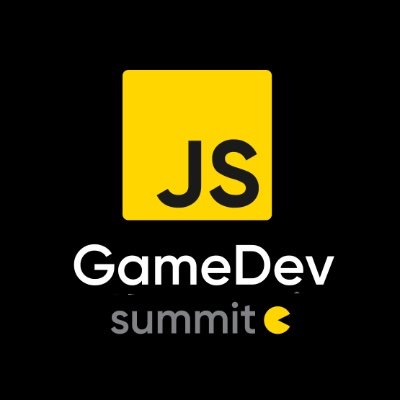1. Introduction to Web3 Gaming
Today we'll be talking about Web3 Gaming, what it is and why it matters. I'm Paul, the CTO and Co-Founder of OP Games, helping game developers find more success in Web3. We have the tools to find new economic systems to create these new kinds of games. The talk will cover what Web2 is, what Web3 is and why we should build on it, and how to get started in making Web3 games. I'm also part of the Kernel Gaming Guild, a group of Web3 fellows exploring building in Web3. Web2 started in the early 2000s and enabled richer web pages. Social, mobile, and advertising technologies decentralized and democratized game development. Power is now centralized around Web2 companies.
Hello, and good morning and good evening, everyone. Today we'll be talking about Web3 Gaming, what it is and why it matters.
I guess a bit of a background on me. I think it's better for us to start before talking about what it is and why it matters, it's who I am and what I'll be talking about. So my name is Paul. I'm currently the CTO and Co-Founder of OP Games, which is a company which tries to help game developers find more success in Web3. What that means is we want to be able to help game developers find more sustainable business models, because us ourselves have been game developers. We've seen the challenges of making games both in Web2 and Web3, and we now have the tools to kind of find new economic systems to create these new kinds of games.
So we're really looking forward to this talk and also telling everyone about the things that we're doing. So the gist of the talk, I'll start with what Web2 is, sort of as a reference point for all of us, and then the majority will be around what Web3 is and why we should be building on it. And then the last part would be how we get started in making Web3 games. And yeah, so and other one other thing to mention is I'm also part of the Kernel Gaming Guild, which is a group of Web3 fellows who explore what it means to build here in Web3. So just something to take a look at as well. So I have my Twitter profile up there and just follow the links. Cool.
And yeah, and so I guess I wanted to start with what Web2 is. And I come at it from a background of a game developer. Web2 started out right around the time of, I would say, around the early 2000s to currently what we have now. It's mostly been about what has been enabled by the newer, richer web pages that we now have. Web2 was like the static web pages, HTML. And then Web2 came about, and it was brought about by all of these new modern web technologies. And I would say also that there are three kind of major technologies that also are important during this movement. And these were social, which is exemplified by Facebook, all of these social networks. Mobile, which is, of course, the devices that we all now use to browse the web. And then advertising. So I would say these three technologies and movements, they decentralized and kind of democratized game development at the start. We've seen a lot of great games start out because of these. A lot of the games you play now were born out of the technologies that Web2 has provided. But as we kind of go into a more mature space, a more technology cycle. We kind of see power centralized around these Web2 companies.
2. Web3 Gaming and Decentralized Identity
In the current Web2 system, value is centralized around the attention economy, with big companies determining the success of games. The power dynamic hasn't changed, leading us to Web3. Web3 is being pulled in different directions and is tied to the Web3 wallet, which decentralizes identity. This allows game developers to bypass centralized platforms and extractive processes.
So we hear a lot about the FAMGA, right? The Facebook, Apple, Microsoft, Google, Amazon. So in the current Web2 system, a lot of value has centralized around the attention economy. And what that means is it's mostly these big companies who are able to determine which games succeed. A lot of the times that the best games that succeed are mostly the ones that have the capability to buy a lot of ads, who are able to get into the app stores to be discovered, and to really just know how to play the game, honestly.
So I shared these two charts. And one thing worth noting is the games that have been the top in the app stores have mostly been the same games since I would say more than five years. So that power dynamic hasn't really changed. And that's largely born out of the current attention economy, wherein the these big companies are, I would say, the kingmakers in this space, which leads us to Web3. I would say that, like, similar to Web2 at that time, right, Web2 wasn't really defined. We kind of see it now in hindsight, and Web3 is in the same space. Web3 is being pulled and pushed and pulled in every direction, I would say. It's being put into the same buckets of nobulous terms such as the metaverse. So it's kind of tough to talk about it. But I think one thing that we can do to kind of simplify it a bit for now is when you think of a Web3 app and think of making a Web3 game, an analogy is just, in Web2, a lot of the initial entry points was the social network accounts or the accounts that we used to log into the app. So we have login with Facebook, with Google, all of these other buttons that allow you to get your identity tied to the game. In Web3, though, the main thing to be able to associate these accounts is the Web3 wallet and what the Web3 wallet is, essentially, is actually just a private key and a public address. So a private key is a mnemonic, a 12 word mnemonic, which is similar to these ones, which as long as you know this mnemonic, you have control of your account. And tied to that private key is a public address. So anyone who knows your public address is able to interact with your account. And most of the time, the transactions are done via wallets and signatures. So something very different here is, of course, we don't need a centralized server now to be able to have access of our accounts. We only need this private key, which is very different. We don't need to be able to, for example, go to Facebook or go to Amazon or Google to be able to build a service. And this is very important because this decentralizes identity. And currently identity is how Web 2 platforms actually consolidate power and extract value from the current services that are out there.
So imagine your journey as a game developer for each step of making a game from creation to distribution, discoverability and monetization. Most of the time you have to go through a Web 2 centralized platform from creation to distribution. You'll need the server from Amazon, discoverability, you'll have to go through the app stores, you'll need to find the, you'll need to go through an ad network and to monetize, you'll have to go through the app stores again. So at every step of the process, it's always been an extractive process for game developers. And that kind of has defined the kind of games that we're making.
3. Web3, Wallets, and Decentralized Finance
Web3 starts with wallets and decentralized identity, allowing us to move away from relying on Web2 platforms. Decentralization reduces platform lock-in, and we should focus on protocols instead of platforms. Web3 gaming is enabled by wallets, which started with Bitcoin and evolved to Ethereum and smart contracts. The ERC20 token standard and NFTs have driven decentralized finance and the creation of unique virtual items and currencies.
And that's really what's important about Web3. So we kind of start with the wallet as the initial entry point, but it's a very, very big, very deep rabbit hole. I would say it starts with wallets and what that means for decentralized identity. So we don't need to rely on these Web2 platforms anymore for monetization and for identity. And that idea of decentralization actually goes through a lot in the technologies that we use in Web3.
So for example, with the wallets that we have now, it doesn't really we use some of these wallets like a Metamask, Argent, and WalletConnect to be able to access our wallets, but these are mostly UX tools. And the important thing is we have these private keys and public addresses, and we don't have to be tied to Ethereum or a specific chain as long as we have these addresses, then we can move across chains. And so what I wanted to hone, the point that I wanted to hone on is decentralization reduces platform lock-in, right? And instead of thinking about platforms, we should think about protocols. And the wallet is a sort of protocol which doesn't need to be tied into a platform. And I mentioned another technology here called IPFS, which is an, I guess, a tangential technology to wallets. It's about decentralized storage. We'll not go into detail there, but just want to point out that decentralization isn't just through wallets, it's also the whole thing that makes Web3 meaningful.
And for the purposes of our discussion, it's because Web3 gaming is really about the wallet. It's about what's being enabled for game developers. And I think also one of the things we should focus on. So, of course, the story of Web3 and wallets has started with Bitcoin, right? It's about sending and receiving cryptocurrency. And one thing that has happened throughout the years is, of course, Ethereum came about. Ethereum enabled us to create smart contracts. And what that means is, aside from just sending money to and from each other, we are now able to create the code to actually build these primitives. So I guess a good analogy here is, now we're the ones who are able to define the transactions ourselves. And it's not the chain anymore that does that for us. So once Solidity came about, the developers really built a lot of technology around it and standards. And one of the token standards that came about was the ERC20 token, which is mostly the standard that is used when you hear about tokens nowadays. So recently, there was the ApeCoin, there are some Metaverse tokens, like Sandbox and Decentraland, and some other chains like Fantom. So that token standard was the start of, I would say, decentralized finance. And of course, we hear about NFTs a lot, something that game developers hear a lot and are a bit apprehensive about. And that's largely because of the... so these tokens, they started out as non-unique, as non-fungible. And then the developers thought about what can we do if these tokens are non-fungible or unique? And that led to this explosion of a few kinds of virtual items and currencies. So this decentralized identity, I would say, led to decentralized finance.
4. Web3 Gaming and Decentralized Finance Continued
Decentralized finance has led to an explosion of Web3 games. Play-to-earn is a popular trend where players can earn currency through these games. Web2 games focused on monetization through ads and in-app purchases, but Web3 allows for more experimentation with financial primitives. Web2 shaped games by prioritizing player retention for monetization. In Web3, we can create new economic models and even think of creating money to make games. To get started, learn from successful Web3 game projects like Axie Infinity, CryptoKitties, and Skyweaver, as well as successful Web3 products like BoardApe.club and ApeCoin. The Loot Project is also worth exploring.
And this decentralized finance is what led to this explosion of new Web3 games. And the current trend, I would say, is a trend called play to earn, where people who play these games are now able to earn currency because, remember that these virtual items, these NFTs, they're also built on cryptocurrency, they're built on the same system, so now they're tradable for fiat money.
And that kind of, I guess, spurred the imagination of all of these developers and all of these people building games. So during the, a few months ago last year, one of the biggest games, Axie Infinity, actually reached a huge market capitalization, even larger than Take-Two and almost as big as EA at $29 billion. So it's crazy. It's a reimagining of the models that we have been used to. Previously, the model really was around how we monetize these games by ads and in-app purchases, right? But now that we have the tools to create these financial primitives ourselves then people are really being playful with them and really experimenting with how we can build games with finance.
And yeah, and I guess as I'm talking through that, I'm reminded of one good way to think about it is that Web2 was the Internet of data. It was all about controlling attention, controlling the data to be able to get that attention. And now Web3 is the Internet of money. Now that we have the tools to move money to define even what money is, then it kind of changes the economic models that we know. And I guess by moving a little bit back on Web2, again, I mentioned that Web2 shaped the games we make. When I was building games, I kind of saw the language of game developers change from before to when Web2 and the attention economy came about.
A lot of the games before were around narrative, I would say, and then when Web2 came about, our language of game design was influenced by marketing, honestly. Like we all now talk about the funnels, the pyramids. We talk about game loops, core loops that make sure that people keep playing the game because the goal for a Web2 game is we need to retain them. People need to keep playing the game. A mantra that I always hear from game developers is retention leads to monetization and that's because the more that people pay your game, the higher the chances they'll pay. And this was the driving game design, right? People would want to keep players as engaged as long as possible so they're able to keep them engaged as long as possible and get as many players as possible so we're able to monetize them via in-game ads and in-app purchases. So yes, Web 2 has colored the kind of games that we were making and I feel this is something we should take note of in Web 3.
We now have the tools as I mentioned to create new economic models and one thing, one aphorism I always talk about is instead of creating games to make money, why don't we shift it a little bit? Let's think of creating money to make games because we are now able to, right? And we've seen some games able to do so. And yeah, and that's what Web 3 is, I guess very simply, it's explore what it is to build games around the wallet but as I said, it's a very, very deep rabbit hole of decentralization and to get started, I suggest a few things to be able to get your feet wet and try to understand what it is and first is to learn from the successful Web 3 game set projects. I mentioned Axie Infinity earlier, it's one of the most successful Web 3 projects that has reached massive valuation and massive adoption but there are other ones that are worth taking a look at. There's a lot of innovation happening in Web 3. Of course, CryptoKitties is one of the earliest games, it was the game that was the inspiration for Axie Infinity. Skyweaver is another great game to take a look at, it's a CCG game, that's very Web 3 and it's partially open source so there's a lot to learn from it as well. Aside from games, I engage people to take a look at some of the successful products as well and apps. Of course, if you've been looking at crypto, BoardApe.club and ApeCoin are one of the biggest properties, there's lots to learn on how they did that. I feel like BoardApe is the model now for a lot of people building Web 3 apps so take a look at what's there and take a look at the things that they did successfully. And the one app or project that I particularly like is Loot Project.
5. Building Web3 Games and Connecting with Builders
Web3 gaming is very experimental and interesting, with a focus on collaborative world building on the blockchain. Understanding the technology stack primitives and differences between Web2 and Web3 architectures is crucial. Scaffold Eth is a recommended stack for building Web3 games, and connecting with other builders through hackathons and Twitter can provide valuable learning opportunities. When building games in Web3, it's important to focus on the strengths of the technology and not simply try to adapt old games to the new paradigm.
It's very, very experimental. Imagine building Dungeons & Dragons on Web 3 and what that means. So I don't think a lot of us know what that means yet. It's about collaborative world building and all built on blockchain. So it's very, very experimental, very, very interesting. And I feel like this will be what people will be looking at as they build new games in Web 3.
The next thing is we should understand the technology stack primitives. I would say Web 3 isn't really that hard to understand if you are a web developer already. There's this great article and I shared it here in bit.ly.web3-architecture which shows what are the differences from a Web 2 architecture versus a Web 3 architecture. And, yeah, just go through that and try to understand these different bits and pieces. And if you want to get hands on developing Web 3 game, I suggest using this stack called Scaffold Eth. It's built by Austin Griffith and it's one of the easiest ways to get into building a Web 3 app. So take a look at speedrunetherium.com and I also have Aliq here, bit.ly.scaffoldethaustin which leads to this video of him talking you through how to build a game using Scaffold Eth.
And the third one is to connect with other builders. I think of course this conference is a good space to do it and some other good spaces to do it is of course hackathons. Some of the good ones are GameDev.js jam, which is happening soon and has traditionally had a decentralized category. So if you join there and build Web3 games with other builders and then that's a good way to learn. I would say also even if you don't know a lot about Web3 yet and most of your skills are on Web2, there's a dearth of skills that of people that are building on Web3 that have that experience. So it's going to be very, very beneficial to that team building. So Ethernobl is another hackathon that I particularly like. And another way to connect with other builders is to join Twitter, go on Twitter. A lot of the people who are building deeply on Web3 are there. And this is another link of a tweet from Will Robinson that lists all of the Web3 people you should follow. So it's here on bit.ly slash Web3 dash game dash folks. And yeah, and some final words on how you should think about building games in Web3. I think one thing we can think about to think of these keywords when we're building on Web3. Because I think when someone is building a game on Web3 they should focus on its strengths and not try to build on old games and just try to shoehorn Web3 or Wallis into it, right. This is a great tweet by Alex who has been an Ethereum builder for quite a while. And he says what he thinks Blockchain games should be doing or Web3 games. And I think it still holds true even though he made this tweet four years ago.
6. The Three C's of Web3 Gaming
Web3 games should focus on being good games first and explore what makes Blockchain unique. Designing around the limitations and creating a persistent and always-on world are important. Players should own the game, items, and experiences, and anyone should be able to design and improve the game. Composability is a strength of Web3, allowing for open-source collaboration. Currency is another key aspect, with the ability to create financial primitives and markets. Community is crucial, with builders co-creating games and contributing to the lore.
And he says that what he wants from Blockchain games is to number one, be a good game first. Number two, explore what makes Blockchain unique. Number three, design around the limitations. Number four, persistent and always on world. Number five, players own the game, the items and experiences. Number six, allow anyone to design and improve the game. And lastly, embrace bots. So it's very different from the kinds of games that we've been making. And I'll touch a little bit on these, on the last three C's of Web3 gaming.
So the first one is composability. So Alex mentioned that the game should be, you should allow anyone to design and improve the game. And that's, I think is one of the strengths of Web3 is that a lot of the work that we're building is designed to be composable and it's designed open source. And that's the reason why we were able to decentralize finance because we had this token standard, as I mentioned, which led to NFTs, which led to a lot of these other NFT marketplaces and the token standard led to other financial primitives as well. So we should think about our games in the same way. We should think about trying to build them up together because of course, this is also a new platform. We need to build on each other's work similar to what's been done in open source in the modern way. So I feel that's how we should be looking at Web3 games. Think of how you can break down your Web3 game and think of using the stuff that is already there.
Another is, so we have composability, that second C is currency and that's one thing we should focus on as well is that, as I mentioned, the Web3 is about the internet of money. We now have the tools to make our own money. We now have the tools to define the financial primitives and the economic models that we want. So this has traditionally been done by platforms. For example, the Steam community market has its own trading card market where you can buy and sell these cards. Now we can actually make these markets the way that we want to. We have the tools to create something called liquidity pools, which allows us to even create our own currency and have them trade the exchangeable for these virtual items. So I have a link here at observable.edu.com at Poll Lads and that's where I shared some code on how to do this and also explained some of the concepts around currency, so that game developers have, I guess, a more gentle way of going from game development to thinking about finance.
And lastly, the final C of Web3 I feel is community. A lot of these projects, like I mentioned APIAT club and the LERUT project, what really makes them strong is the community. It's a community of builders co-creating the game with them. It's a community of builders also who feel tied to the lore of their game and are building fun projects out of it, building, co-creating the game, even by suggesting game design.
7. Engaging the Community and Web3 Game Genres
Web3 games should engage the community to be co-creators, incentivizing them with tokens and exploring new genres. If you want to know more, go to docs.opgames.org or reach out to me on Twitter. Web3 is changing how we create games and web products, and we should understand and write the rules ourselves. RPG games are popular in Web3, but there are also RTS games like Conquest and Dark Forest. As a Fighting game fan, I'm interested in exploring how Fighting games can be done in Web3.
So I think that's something that Web3 games should really lean on is how can we engage our community to be co-creators? They can design the games themselves, create content around it. Now that we have the financial primitives to also incentivize them to do so, then we can explore doing that. For example, what if when someone creates a new level for your game, you reward them with tokens or you can make a system where the creating of assets is the game itself. So it's all very experimental. It's all very, very, very new. We were now creating new genres. And I think that's really what we should be exploring in Web3.
And that's it. Hopefully that was a good introduction into Web3. I understand it was a very whirlwind introduction on a lot of concepts. But if you want to know more, go to docs.opgames.org. Of course, reach out to me on Twitter, at Polats. And I'd be happy to engage. I think a lot of game developers and web developers need to see what's happening in Web3 because it's going to change how we create our games, create our web products as well. And we should try to understand what's happening and write the rules ourselves before it centralizes again like how it happened in Web2.
Let's see the results to your poll question. So you asked, what genre of games would you want to see built on Web3? And RPG games won with 54%. What do you think about that? Yeah. I do find the same thing happening in Web3. A lot of the games are RPGs. And yeah, and I guess we're talking about the other ones, RTS as well. I can name a few games that are in Web3 that are similar. Of course for RTS, there's Conquest. I think, I'm not sure if I mentioned it in the top but that's another game to take a look at. And Dark Forest, which is an on-chain Web3 game. So yeah, it seems like people, at least the game designers seem like they're making the kind of things that people want. So that's pretty cool. I think I'm, I actually voted also on the poll. I think I'm the only one who put Fighting there because I'm a big Fighting game fan. I don't know how we could do that on Web3 but yeah, something worth exploring.
Web3 and Decentralization
The challenge with Web3 is the ongoing centralization due to market forces and technological limitations. While companies like OpenSea have decentralized certain aspects, Web3 aims to be a protocol that anyone can use. NFTs, for example, are primarily a protocol, allowing for the development of OpenSea competitors or custom web app front ends. However, it's important to note that decentralization will continue to evolve as the technology matures. We may still rely on some web 2 components, but with collective effort, we can achieve a decentralization that benefits developers more than platforms.
That would be exciting to see. Yeah. Yeah. So let's get back to questions. We have some questions from the viewers. Daniel asks, with the Webping and Open decentralized system by design that unfortunately gravitated towards monopolies for example, like OpenSea for NFTs, how would Web3 be different from that? Yeah, good question. I think that is also the challenge with Web3 is a lot of the market forces are still in play. So there's a lot of centralization that's still happening. And frankly also, the technology isn't there yet to decentralize everything. So you see companies decentralizing a little bit and just doing some certain things to be able to get the market faster. So I think OpenSea did it that way. The ideal is it's going to just be a protocol I would say, like anyone can use. And that's one thing though, is that NFTs, it's only mainly just a protocol. So if anyone wanted to build their OpenSea competitor, they can do so. If they don't want to use OpenSea and just build their own web app front end, that's also possible. So at least I think with web3 that's possible. If you wanted to do something on the app store, on iOS for example, then you have to go through Apple. So that's something to take note, that of course there's going to still be decentralization until this technology really matures. We're still going to use some of the web 2 components like Amazon, some of these other web 2 tools that we need, but I think we'll as long as we all help out in building it right, then we can get to a point of decentralization where it's more beneficial to us developers other than to the platforms. Yeah, thank you.
Web3 Discoverability and App Installations
Web3 is still working on solving the problem of discoverability in the classic web. While companies are trying to create Web 3 versions of platforms like YouTube and Twitch, there is still a lot of work to be done. Web 3 has focused on incentives, using tokens to incentivize users and move away from the attention economy. Play to Earn is a popular movement, but there is more to come. As for Web 3 apps without browser extensions, progress is being made. Browsers like Brave and Opera are integrating wallets like MetaMask, and mobile wallets are improving the user experience. It is becoming easier to interact with Web 3 apps without the need for extensive installations. The big players in the industry are also recognizing the importance of crypto and Web 3.
And here's another question. So the second part is that, how does web3 solve the biggest problem of the classic web discoverability?
Oh, yeah. Good question, and I'm actually not sure yet how that's done. There are some companies that are trying, so they know, of course, that it's all about attention. People are monetized by their attention and that's why you see a lot of ads on Facebook. A lot of discovery is done through ads, through influencers as well. So a lot of games are discovered by YouTube, by Twitch. So I guess some companies are also trying to make a Web 3 version of these platforms. We're not there yet. Even Web 3, for example, right? No one knows about Web 3 yet in the mainstream, so there's still a lot of work that needs to be done there. But one thing I can maybe tell people to look at is Web 3 has really taken a look at incentives. So now that we have tokens, we can incentivize people to do certain things. So that might be a tool we can use to move away from attention, right? Maybe do something else. For example, of course, Play to Earn is the biggest movement out there. I don't think it's like the final version of what Web 3 can do, but these certain steps, I would say, will allow us to take a little bit back from the attention economy and from Web 2 and try to build our own, maybe our own curation platforms and our own incentive networks to solve discoverability.
Thank you. Daniel has another question. We've trained users for decades not to install random stuff when sites ask them to, and for good reasons. When do you see Web 3 apps being possible without players having to install browser extensions?
Oh yeah, definitely. That's one other thing. I talked about metamask and wallets, right? Right now, if you want to go on Web 3 on a browser, you need to install these extensions. I do feel like we're getting there. Some browsers are integrating metamask like Brave. I know Opera also has its own wallet. And then in mobile, there are wallets that have a good UX experience. I would say if you install metamask on your iPhone or your Android device and you interact with a Web 3 app, then it's kind of becoming, I guess, standard. That it's kind of easy to do that now versus when we were making it maybe four years ago. So it'll get there. I feel like the big players are also looking at crypto and Web 3. They understand that it's a movement that's happening here.
Web3, Nodes, and Economic Challenges
Web 2 was the internet of data and Web 3 is the internet of money. Companies are realizing the potential and trying to make it more accessible for players. Running an Ethereum node can be challenging and costly, but there are providers like Infura and Pocket Network. Ethereum is also working on reducing the size for hosting personal nodes. Other chains with less transaction volume and layer twos offer alternatives. Dappnode allows running personal nodes. Web3 solves economic challenges for game developers and offers new opportunities for exploration.
Something I tell people is that Web 2 was the internet of data and Web 3 is the internet of money. And so these companies realize that they wanna get in there. So the forces are already in place to make this more easy for players to use. And of course, it's also getting more centralized. So we kind of have to build on it before the rules are written for us.
Yeah, exactly. Endel has a question. Is that to run an Ethereum node, it is required to have two plus terabytes SSD available. The cost involved to run a node does not seem democratized for me. Is there some blockchain out there that treats the storage in a way that anyone could run a node locally and be a part of the network?
Yeah, yeah, that is a challenge. It's frankly also I don't build on blockchain nodes. I do know the challenge of running your own node, and there are providers that allow you to do, allow you to use them nodes, for example, Infura, Pocket Network. So there are other people who are setting up those that you can use. But of course the idea is we set up our own nodes, right? So that it's fully decentralized. I know Ethereum is looking at that there. Of course, the movement to the proof of stake is there. I know, yeah, I guess don't quote me on this because I'm not really a core developer at Ethereum, but I do know that they're also thinking about how to reduce that size for people to be able to host their own nodes. And yeah, and of course, Ethereum is just one chain, right? There are other chains that are, that have less transaction volume. So that running a node is easier. So all the layer twos are there. And of course, if people wanted to run their own Ethereum network or their own Ethereum virtual machine-compatible blockchain called the sidechain, they can do that as well. Of course, that's a bit challenging. It's a lot of infrastructure that you need to do on your own, but yeah, but if it makes sense for you and you have the capability to do so, then take a look at that. There's a company called, I think Dappnode that allows you to run your own nodes. So that's something that is also something that people can take a look at.
Thank you. And Dan has another question. And it's that, what problem does vat3 solve? I don't really get it. No, well, I guess that's, it depends on your outlook, right? If you're a player or a developer, there are certain challenges. One thing I also think of when people try to understand web3 is that it's an economic problem, I think, a lot of game developers, because we look at web3 because it was something that we wanted to investigate because we've been developing games for quite a while.
Web3: Redefining the Gaming Industry
Web3 gives game developers the tools to redefine the gaming industry. It allows us to imagine something more and use the same economic tools that platforms have been using. Take a deeper look at the people building it and understand the economics to benefit ourselves as game developers.
And I've seen that it always centralizes around certain platforms, right? For example, with the App Store, it's centralized there, so if you wanted to make your own games, you had to play by the rules. You had to make games that were focused around doing in-app purchases and ads, right? I feel like game developers didn't really want to make games that were like that. I myself started making games because I wanted to tell stories. It was about making a game that was similar to the games that I love. And now just throughout the years, it's been mostly around how do we get attention? How do we get people to pay for these games? So now web3 gives us a way out of that, I feel. It allows us to imagine something more. I know people have been used to playing games a certain way or making games a certain way, but now we have the tools to redefine that. We now have the same economic tools that a lot of these platforms have been using either for us or against us. So now we can do that on our own. I suggest people take a deeper look. I know it feels like there's a lot of people just looking at money, just looking at this is the next step on virtual items and how they can make more money out of us players. But yeah, take a look at the people building it, understand the economics and see how we can use it for ourselves as game developers. Thank you.
Vectree: Play-to-Earn and Composable Games
Vectree is a platform where games are play-to-earn, but it also offers the exciting opportunity to explore composable games. The Loot Project, a project on Vectree, has reimagined Dungeons and Dragons and allowed game developers to build on top of it. This creates a space for co-created games and community-driven lore. Vectree focuses on three Cs: community, currency, and composability. Dive deeper into Vectree to see the possibilities and the potential of this new technology and movement.
And also, what are you thinking about what kind of games are seen on Vectree? Yeah, well, right now I did mention a lot of the games are play to earn. It's mostly around people playing and earning because these items already have value. But one thing that excites me is the composable nature of Vectree. I mentioned this game, or not really a game, but this project called the Loot Project, which is kind of reimagining Dungeons and Dragons on Vectree. So it's pretty out there. Like how it started is an NFT collection of loot and then game developers started building games and other software on top of it, just from this small primitive. So I want to explore how we can do that. How can we build composable games, games that are co-created by the community as well and wherein the lore is also actually created by the community. It's very interesting. There's still lots to explore. It's just another step, but yeah, take a look deeper into Vectree and see the possibilities that we can do with this new tech and these new movements. And of course, I want to mention earlier that Vectree really is all about three Cs, the community, currency and composability. So yeah, so use that lens when you're looking at Vectree.



























Comments